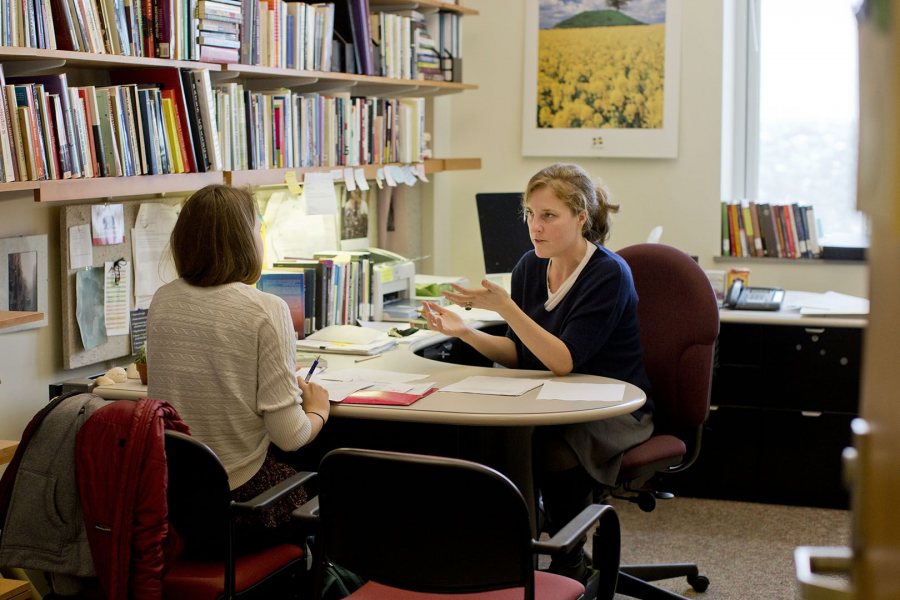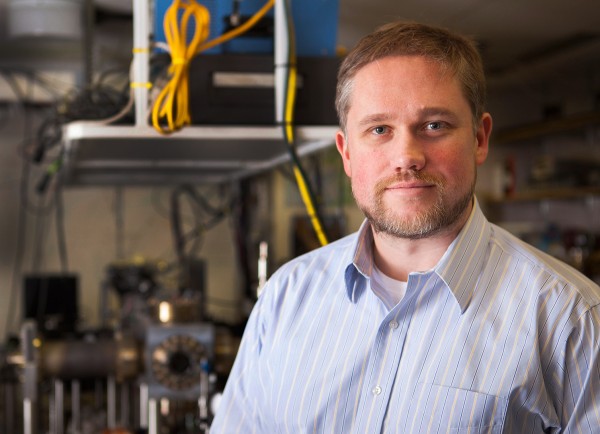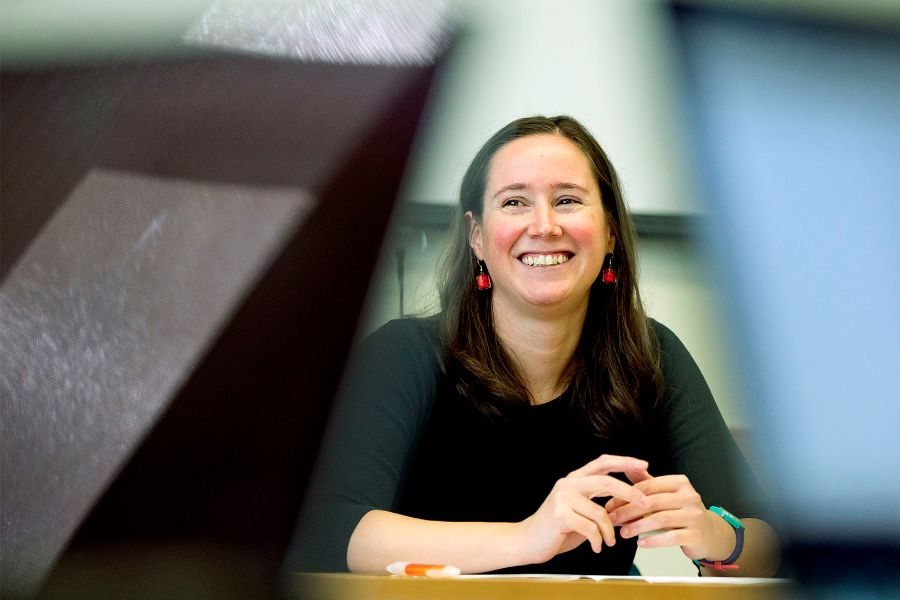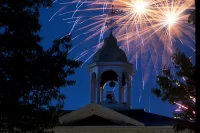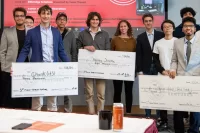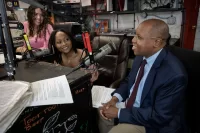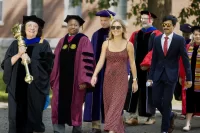
The unique proposition of Bates’ new Digital and Computational Studies Program
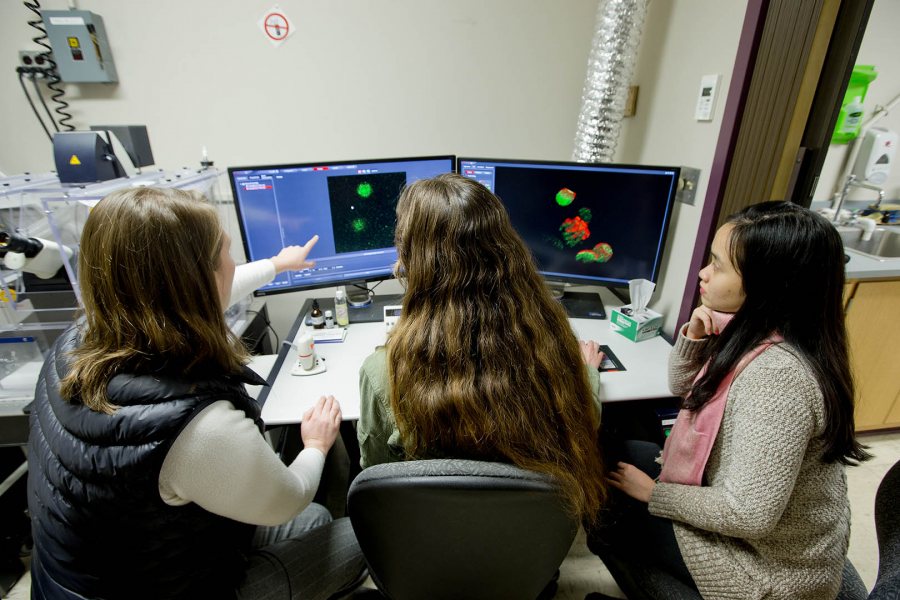
The new Digital and Computational Studies Program will teach students to have a broad, critical, and thoughtful approach to problem solving in a digital age. (Phyllis Graber Jensen/Bates College)
Technology is instantaneous, global, and ever-changing.
And it’s placing unprecedented pressures on colleges like Bates to expand how they define and deliver a liberal arts education.
Bates, for one, has a robust curricular response: With recent gifts of $19 million from seven Bates families, the college will build and launch a new Program in Digital and Computational Studies (DCS).
“The capacity to claim the world.”
The program will comprise three new professorships, a range of new academic courses, and eager involvement from Bates faculty in many disciplines.
Ultimately, the program’s goal is squarely in the liberal arts wheelhouse: To give Bates graduates “the capacity to claim the world,” in the words of classics professor Margaret Imber.
In this Q&A, 11 members of the Bates faculty talk about the work of building an innovative and distinctive DCS Program.
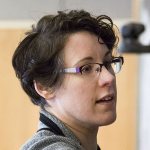
+As chair, what do you hope to bring to the development of the Bates DCS Program? Expert: Lauren Ashwell
Expert: Lauren Ashwell, associate professor of philosophy and chair of the Program in Digital and Computational Studies
Much of my teaching in logic, metaphysics, and epistemology touches on the limits of computation. I also teach feminist philosophy, which includes the kind of social critique that I think will be important to the DCS Program.
While it is easy to hear that Bates is creating an interdisciplinary program and then think that the focus will be on computers merely as tools and instruments for work in other disciplines, it is important to note that the program will go beyond this. The DCS Program won’t just equip students with the ability to use computational methods, but will also include awareness of the limits and the social impact of technology.
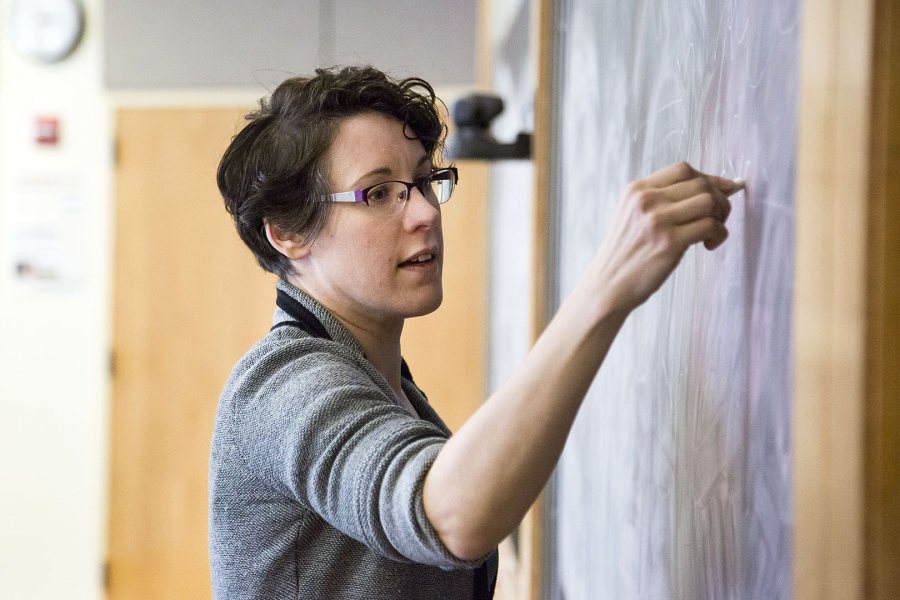
Associate Professor of Philosophy Lauren Ashwell is chair of the Program in Digital and Computational Studies. (Josh Kuckens/Bates College)
That’s the great thing about the group of faculty working on the program – I don’t think anyone sees DCS as merely a set of tools for other disciplines, but as something that will complement the existing Bates curriculum in a robust kind of way. Computation can extend possibilities within other disciplines, but other disciplines can also bring their own tools to bear on questions about the digital world.
As builders of the DCS Program, we can instill the idea that learning about the tools of technology is not only about all the wonderful things that you can do with them, but also about what you can’t do. Students need not just awareness of the theoretical limits of computation but also the skill and ability to think critically about the limits of technology’s ability to solve problems.
In my classroom, when we talk about critical thinking, I use the word “careful” to describe an important skill that I want my students to take away from their coursework. You are careful in the sense that you do not just accept what people tell you: You reflect on it with time and care. You are not just being fed information — instead, you’re engaging with information in a reflective way. These are the characteristics of a future Bates DCS student.
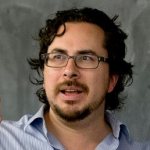
+How will the Bates DCS Program be distinctive and make Bates a leader in this realm? Expert: Jason Castro
Expert: Jason Castro, assistant professor of psychology
The way DCS is conceived at Bates is unique because, for one, it will be more than just a computer science program with add-ons and peripherals.
It was conceived as a communal enterprise; the decisions about how DCS will be formed and deployed, and conversations about its intellectual makeup, involved the humanities, natural sciences, and social sciences.
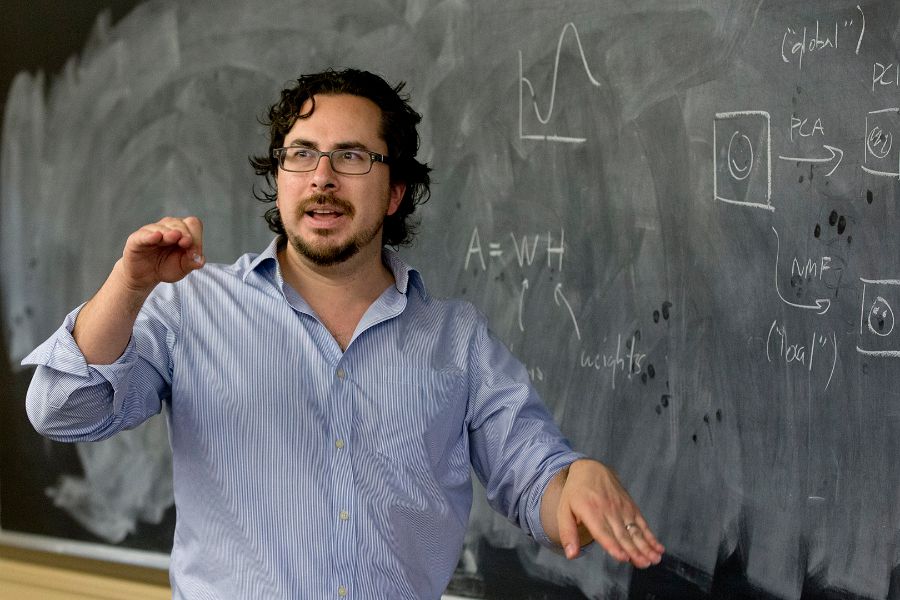
Jason Castro teaches computational neuroscience during Short Term 2014. (Phyllis Graber Jensen/Bates College)
Having that cross-disciplinary conversation, that set of ideas built into the launch of the program, is exciting. It will make for flexible curricular programming and vivid awareness of the roles that digital media have in our lives.
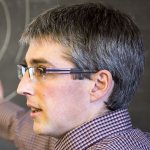
+What would you tell a colleague at another institution about why you are keen to teach in the Bates DCS Program? Expert: Nathan Tefft
Expert: Nathan Tefft, assistant professor of economics
Because the Bates program will be inter- and cross-disciplinary, I would tell a colleague that I am in the right place and time, in terms of my research.
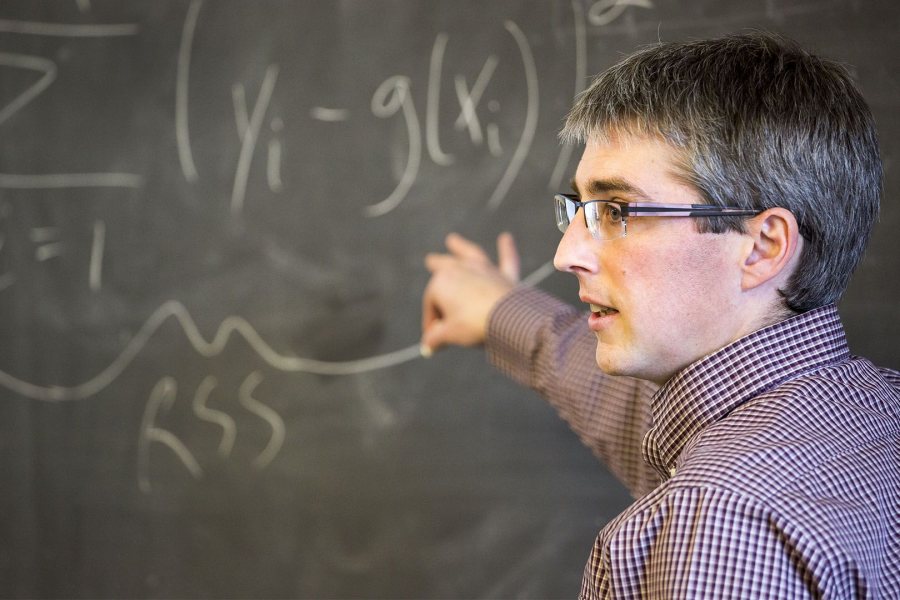
Nathan Tefft is an assistant professor of economics. (Josh Kuckens/Bates College)
In my work, I seek to answer important questions using data in novel ways.
The Bates DCS Program will support my research in part by bringing me into closer contact with new methods and tools from computer science and statistics, tools that are associated with the Big Data phenomenon and are fast being adopted by economists.
The DCS Program is also a crucial development in our historical liberal arts mission.
If a liberal arts education means giving graduates a deep understanding of the various ways that people interact with the world, and if people interact with the world through technology, then I believe a Bates education that includes DCS will be much more effective.
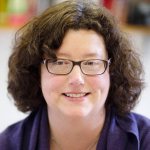
+What are the implications for the college's information and library services operation when we add DCS to the curriculum? Expert: Katie Vale
The Expert: Katie Vale, vice president for information and library services and librarian
One of the things that’s particularly novel is that this is not just a straight computer science program. While students can certainly learn to code, the Bates DCS Program will give students experience with a variety of technological tools and the curricular work will have ties to many different subjects and topics.
What ILS excels at is helping people make connections.
Technology plays a central role in myriad forms of inquiry and expression, and students will learn and apply skills that will help them at Bates and well beyond. That excites us a lot.
What ILS excels at, especially on the library side, is helping people make connections, find information, and learn to use technologies to ask questions and solve problems. Our librarians and academic technologists assist faculty in thinking about new types of assignments that will increase students’ understanding of the world.
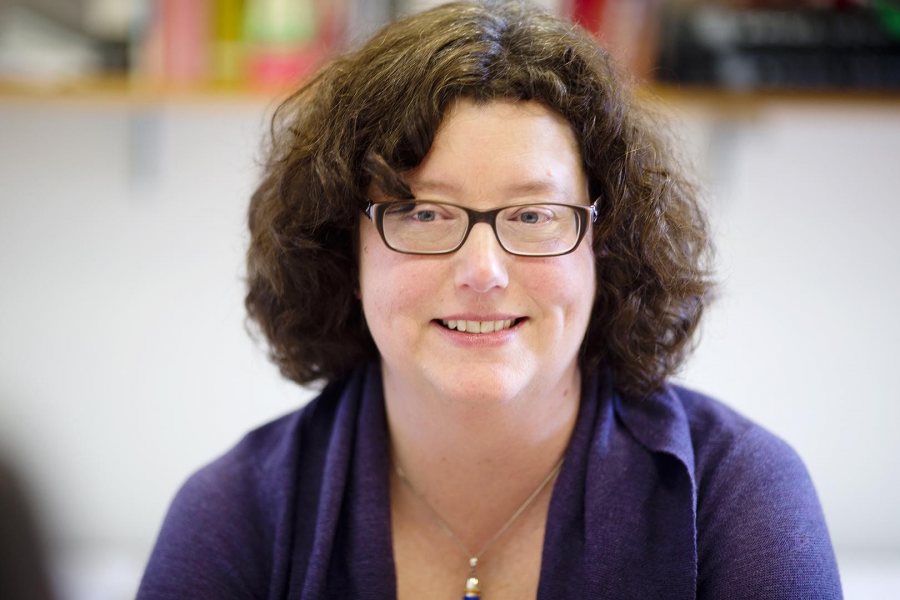
Katie Vale is the college’s librarian and vice president for information and library services. (Phyllis Graber Jensen/Bates College)
For example, they can locate actual government data sets that can be analyzed to understand a range of political, social, and economic issues in a particular country or group of nations. Or they might help with GIS mapping technologies to identify population changes or environmental resource constraints. Students can report their findings via research papers, multimedia assignments, or even 3D-printed items.
Digital and information literacy skills are necessary for life in the 21st century, and we in ILS look forward to supporting the DCS Program.
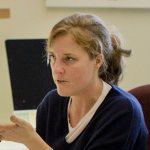
+What is the value of bringing interdisciplinary thought to the Bates DCS Program? Expert: Rebecca Herzig
The Expert: Rebecca Herzig, the Christian A. Johnson Professor of Interdisciplinary Studies and chair of the Division of Interdisciplinary Studies
In my view, an interdisciplinary perspective is really about perceiving and understanding relationships, and that’s a long-standing theme at Bates, something Bates students do unusually well. And what does a networked world demand but the ability to see and frame and transform relationships in new ways?
I like to imagine that our graduates will help build a different kind of digital infrastructure and, in so doing, build a different kind of world: more inclusive, more sustainable, more democratic.
And they’ll be able to do that not only because they have the requisite technical skills in coding and analysis and so on, but also, more importantly, because those skills emerge within the context of a broader liberal arts education.
An interdisciplinary education can encourage students to explore the social underpinnings of technical skills, and the limitations of those skills, as well as their most potent applications.

+Why might a DCS-minded student — or young scholar, for that matter — go to a liberal arts college like Bates instead of a school known for computer science? Expert: Nathan Lundblad
The Expert: Nathan Lundblad, associate professor of physics
Launching the DCS Program underscores the college’s strong support of faculty who have a commitment to both teaching and research.
At top liberal arts colleges, cutting-edge research in the natural sciences is attracting federal dollars, being published in top journals, and sending students to top graduate programs.
For example, I have a federal grant from NASA to study the physics of ultracold atomic systems aboard the International Space Station, and as part of this I’ll be one of a few remote users of a facility orbiting the Earth performing precision tests in quantum mechanics.
I’m excited to bring DCS students aboard as interns for computational aspects of my project.
This project involves extensive computer modeling and programming to guide and design various experimental processes, and, as happens at a liberal arts college, Bates students have been working directly with me on crucial aspects of the project.
I’m excited to bring DCS students aboard as interns for computational aspects of my project, and I’m looking forward to having my physics students take DCS classes to better prepare them for research where computational skills are increasingly indispensable.
Coming to Bates to work in digital and computational studies gives students the opportunity to work on projects like this while benefiting from the close teacher-student interactions that are the central pillar of the liberal arts experience.
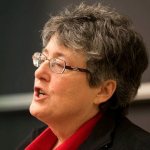
+How will the Bates DCS Program support what the mission statement calls the 'emancipating potential' of the liberal arts? Expert: Margaret Imber
The Expert: Margaret Imber, associate professor of classical and medieval studies
DCS is going to allow students to ask the critical question of the liberal arts: Why do I know what I know? Why do I believe this? How do I know it?
You have the capacity to claim the world.
In pursuing those questions, you have the capacity to liberate yourself. You have the capacity to claim the world.
I have a senior doing an honors thesis on the political topography of violence in ancient Rome. He made for himself a data set of every reference to political violence in Rome in the last century of the republic. He used software to recreate images in 3D to better understand, for example, Livy’s and other written descriptions of riots down the streets of the Via Sacra.
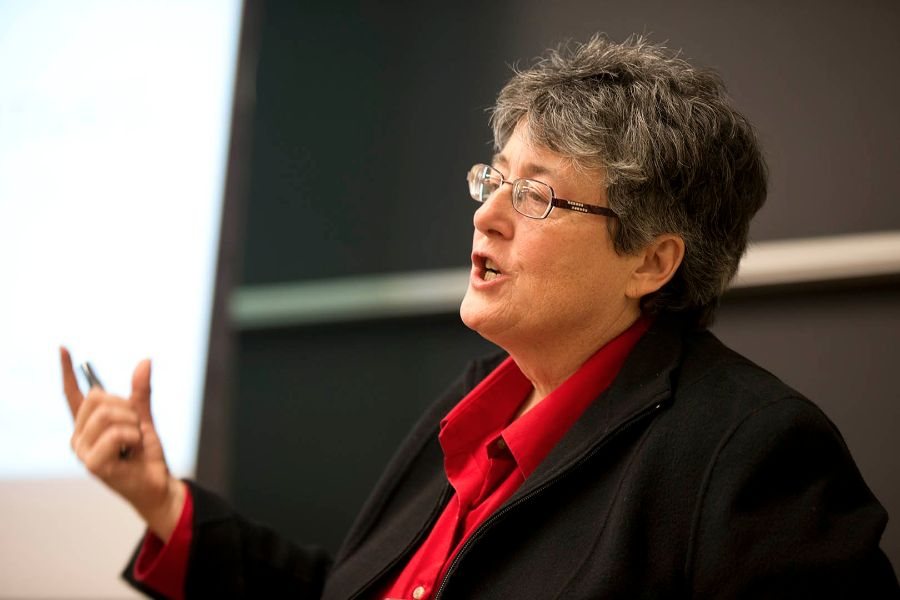
Associate Professor of Classical and Medieval Studies Margaret Imber is co-director of the Faculty Commons for Teaching and Learning. (Phyllis Graber Jensen/Bates College)
By using these tools — more often associated with the natural sciences or graphic design rather than classics — he got a much better sense, almost tactile, of what the words were describing. More important, he gained the ability to ask questions about the accuracy or distortions of the historical texts.
That’s why DCS is perfect for Bates and the liberal arts. It will help emancipate students from presumptions, sloppy thinking, and living in a world that other people give to you.
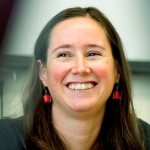
+How might DCS contribute to citizenry that is more numerate, and why does that matter? Expert: Adriana Salerno
The Expert: Adriana Salerno, associate professor of mathematics
For me, numeracy and computer literacy are human rights, like reading. We believe people have a right to learn how to read because it gives you opportunities. I believe the same should be true for being numerate.
Nobody every says you have to compete in the Tour de France in order to be considered a bicycle rider. It should be the same for learning math and computer science. You don’t have to be the best person at this. But you can still do it.
Yet in computer science and STEM fields there is often that attitude that says, “This is only for a certain elite.” But we have a problem if only certain groups of people have the skills to have those jobs, and we especially have a problem if those elite just happen to all look very similar in terms of their race and gender.
We have a clean slate. We can decide what this major is going to be.
At Bates, we have the power to create a program that doesn’t have the baggage and vices of some of the established programs, where people say, “Computer science is taught this way.” We have a clean slate. We can decide what this major is going to be and who it is going to attract, whether it’s a student who likes math, or is a dancer, or takes a lot of philosophy courses.
We will create all sorts of routes for students to get a technology- and computer-science-based education.
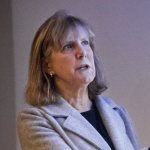
+What value might an art and visual culture major find in the DCS curriculum? Expert: Rebecca Corrie
The Expert: Rebecca Corrie, Phillips Professor of Art and Visual Culture
DCS gives us a chance to equip our already great students with the skills they increasingly need.
When technology arrived in our fields, you could say, “Let’s bring someone in who knows how to do that.” Today, you cannot outsource technology tasks. You have to embody them. You need to have the skills.
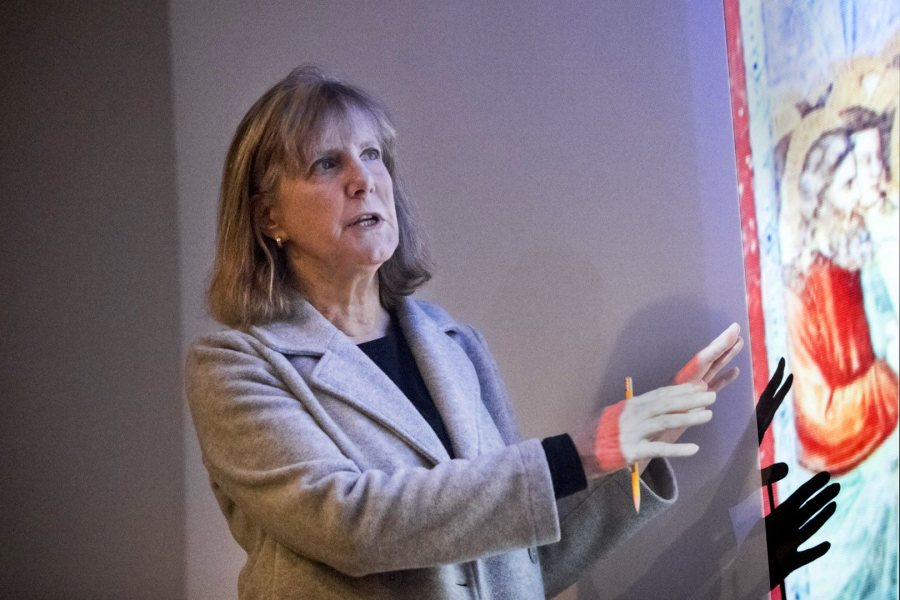
Rebecca Corrie is the college’s Phillips Professor of Art and Visual Culture. (Josh Kuckens/Bates College)
For example, if you are an architectural historian who needs to create a digital reconstruction, you should not only know the art history and the architectural history but also be capable of working with or even developing the programs yourself.
Fields that hire art history majors, such as museums and auction houses, for example, want hires who know how to code and who are skilled at different technologies.
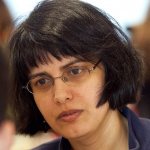
+What do you see as the unifying themes of the Bates DCS Program? Expert: Pallavi Jayawant
The Expert: Pallavi Jayawant, associate professor and chair of mathematics
What the Bates DCS Program will support and recognize — whether the ultimate goal is theorizing and applying principles of computation, exploring philosophical boundaries of artificial intelligence, modeling queries using complex data sets, or designing three-dimensional digital maps using layers of coded data — is creativity and rigor in defining and answering questions.
Importantly, DCS at Bates will support collaboration across the entire faculty, inside and outside of the program, to develop new elective courses and/or enhance their existing courses with digital and computational abilities.
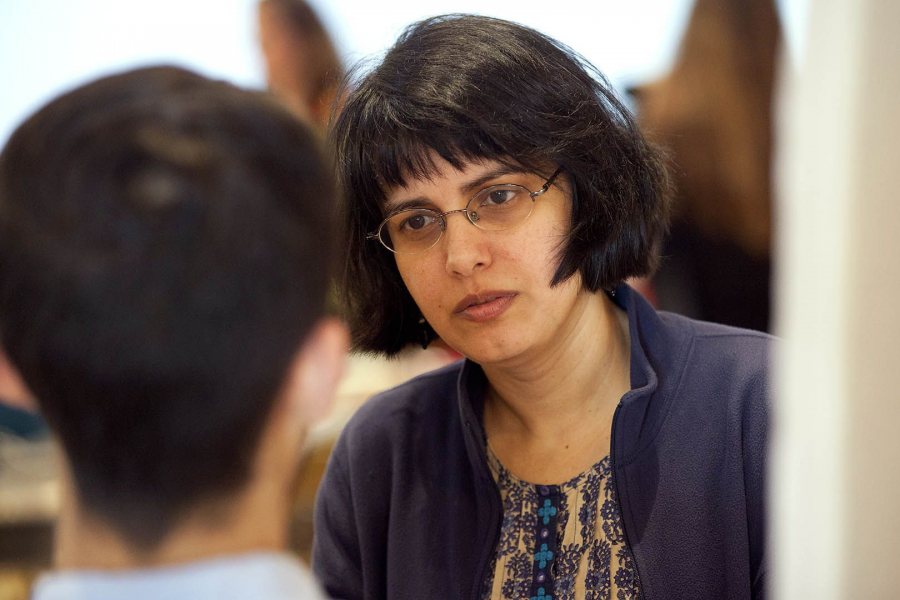
Pallavi Jayawant is an associate professor of mathematics and department chair. (Phyllis Graber Jensen/Bates College)
DCS will teach students how to get inside of and learn their way around computers rather than simply be proficient at using them. This will be especially liberating because it will help them develop and apply new knowledge and improve their understanding of the world around us.
Ultimately, an education that involves the Bates DCS curriculum can serve as a bulwark against unreflective, biased, or limited understandings of computer technologies in our lives.
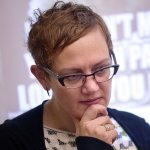
+How might the Bates DCS Program help faculty and students find new connections across disciplines? Expert: Eden Osucha
The Expert: Eden Osucha, assistant professor of English
Technology is transforming, in a real sense, the very objects of study that are at the heart of the humanities and the humanistic social sciences.
As we develop the program, we will recognize that in teaching students about technology, we need to be teaching students to have a critical understanding of technology’s many impacts on language, community, identity, culture, and our notions of the human. Technology is transforming all of these things, which are, in turn, also shaping technological change and practices.
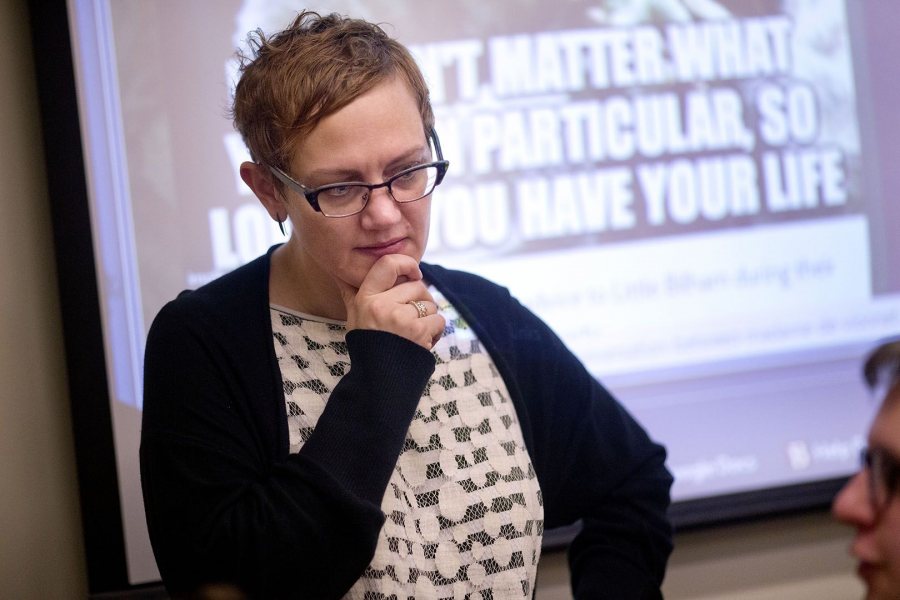
Assistant Professor of English Eden Osucha teaches a class in Pettigrew Hall. (Phyllis Graber Jensen/Bates College)
When students do technologically driven assignments in an English classroom alongside more traditional writing assignments, an interesting thing happens: They begin to recognize something new about their academic disciplines, whether they are humanities majors or not.
A senior physics major or a math major who takes their first English class and does a digital textual mapping project, for example, might realize that, while they are adept at thinking about knowledge in terms of data, or thinking in terms of structures and relations, they now can deploy those abilities to achieve a critical engagement with a literary or other cultural text.
In so doing, they expand their own understanding of the value and purpose of those skills.
Gifts of $19 million to create six new endowed professorships, including three for the DCS Program
Last May, at the last faculty meeting of the 2015 academic year, the Bates faculty approved a new Program in Digital and Computational Studies, with one major condition: that Bates would secure millions in funding to establish up to three endowed new professorships within the new program.
Meeting that condition took just half a year. On Feb. 5, Bates announced gifts of $19 million to create six new endowed professorships, including three for the DCS Program, plus endowed program support.
Funding in place, the program has a fall 2018 slated start date as a major.
Demand for the program is high. Survey results suggest that 94 percent of students believe that Bates should have a DCS major. Fourteen percent of students say they would “definitely major” in DCS. And 69 percent indicate they would take courses in the program.
Interest among professors is great, too, as are the preceding ideas and insights about why the Bates program can be among the best in the country.
Professors are also eager to explain why the program will be quintessentially Bates — how it will support key parts of the Bates mission statement, such as:
- dedication to the emancipating potential of the liberal arts;
- educating the whole person; engaging in the transformative power of our differences;
- cultivating intellectual discovery and informed civic action;
- and preparing leaders sustained by a love of learning and a commitment to responsible stewardship of the wider world.
